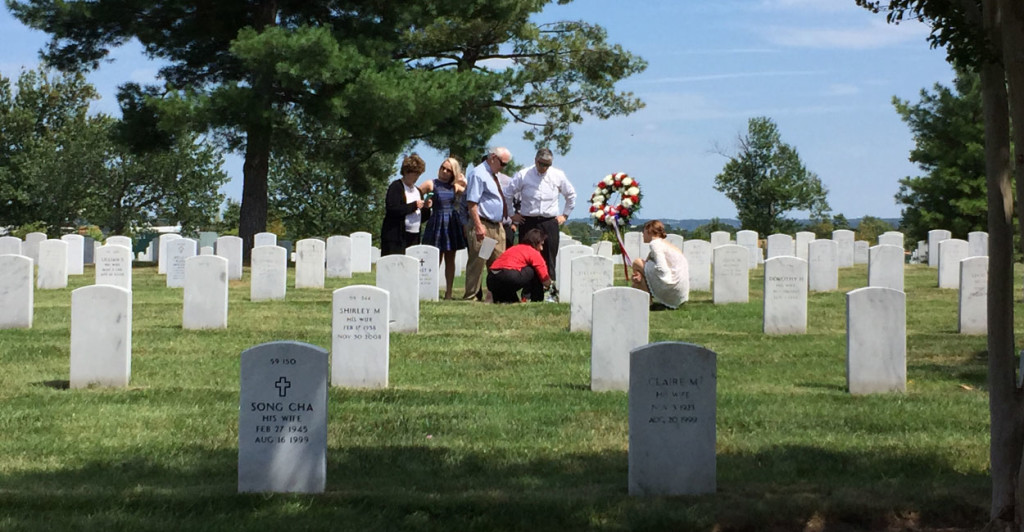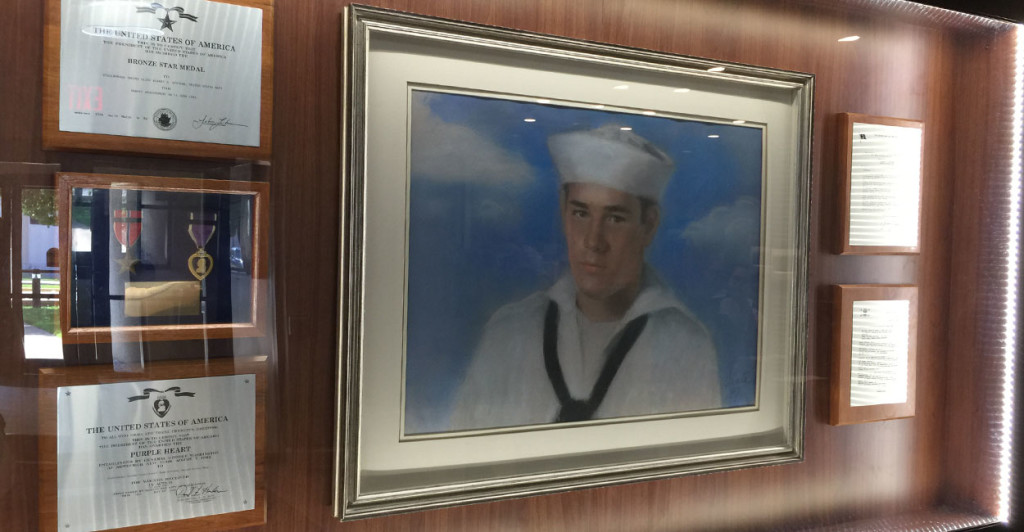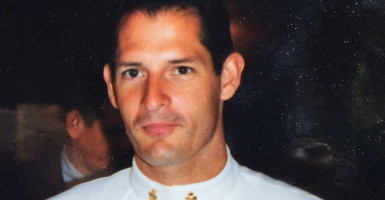For Ken Stethem, the Iran nuclear deal is personal.
“I’m doing something out of what, for me, is a form of duty,” says Stethem, referring to his work with Veterans Against the Deal, a coalition of veterans speaking out against a nuclear deal he says is “supported on partisanship and not principle.” President Obama recently defended the deal, saying, “We have to try to solve problems without resorting to military force.”
Stethem’s deeply enmeshed sense of duty stems from hard-won experience and unimaginable tragedy: Stethem, who for 20 years served in the United States Navy as a Navy SEAL and an explosive ordnance disposal (EOD) technician, lost his brother in June of 1985 when Hezbollah terrorists hijacked the commercial aircraft he was aboard as he returned from a Naval assignment in Greece.
Seeing that Stethem’s younger brother Robert—at the time a Seabee Diver—was also a member of the U.S. Navy, the terrorists isolated, tortured, and ultimately murdered the 23-year-old, throwing his body off the captured Boeing 727 and onto the tarmac in Beirut.

Ken Stethem’s family visits his younger brother Robert’s grave at Arlington National Cemetery in Virginia. (Photo: Ken Stethem)
“I’ve seen terrorism professionally, and I’ve seen it personally, and because of my brother’s situation, [my family has] been involved with the politics and policies of terrorism,” says Stethem, who now works as the CEO of professional security solution company Aegis Industries. “That hijacking was by Hezbollah terrorists, but it was funded, planned, and supported by Iran.”
A deal with Iran, he says, therefore jeopardizes a delicate balance of power in the Middle East, potentially empowering malevolent organizations while abandoning a sanctions policy that has proven successful.
Perhaps more problematically, he argues, the deal entrusts individuals who have repeatedly proven themselves to be deceptive with funds that will effectively double their economy overnight—with no guarantees.
“The last six presidents have failed to develop an effective policy against or properly deal with terrorist regime,” Stethem says. “Because we refused to deal with it when it was a small group, now we’re having to deal with nuclear power and weapons. [Iran will] not stop their march towards weapons. Sanctions were the most effective policy our country has had against Iran in 36 years, and this deal lets them go.”

One of many tributes to Ken Stethem’s younger brother Robert, who was killed by Hezbollah terrorists in 1985. (Photo: Ken Stethem)
Stethem and his colleagues at Veterans Against the Deal have, over the last month, completed a media blitz, appearing in television advertisements, on shows like Fox’s “The Kelly File,” and at the rallies of 2016 presidential candidates, “banging the drum,” as Stethem says, “not towards war, but towards better terms.”
“We were told, ‘These terms, this deal, or war,’” Stethem says. “So when [Iran breaks] the deal, the question is going to be, ‘Now what?’ To everybody who says they won’t, I want to see their backup plan.”
On Wednesday, Stethem and Retired Staff Sgt. Robert Barlett, also of Veterans Against the Deal, spent the larger part of the afternoon knocking on the doors of senators and congressmen in Washington, hoping a last-ditch appeal could turn the tide of public opinion.
“There is no quit in this,” Stethem says. “We’re going to keep telling the truth until it makes the difference it should.”
Correction: September 14, 2015
An earlier version of this article misstated that at the time of his death, Robert Stethem was a college graduate. Stethem did not attend college.

























